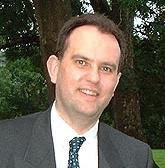Ms Blackmore asserts that once natural selection is understood it will lead to acceptance of Darwinism. But all creationists accept natural selection; that isn't the problem. The problem is whether that is sufficient to account for all of life, and there are severe hurdles to overcome in the neo-Darwinian thesis because it requires a directional or progressive increase in complexity, without a director. The concept of undirected direction is an oxymoron. These hurdles are so large that many evolutionists are at a loss to explain it, they just keep the faith believing a non Darwinian explanation may one day come to their rescue - (it is called intelligent design, but they don't know it yet). Seth Bullock at a recent conference in Winchester commented that
"Evolution on its own doesn't look like it can make the creative leaps that have occurred in the history of life,...It's a great process for refining, tinkering, and so on. But self-organisation is the process that is needed alongside natural selection before you get the kind of creative power that we see around us....Understanding how those two processes combine is the biggest challenge in biology." Comments from Winchester Conference
The other problem Ms Blackmore fails to note is a foundational fallacy, the belief that scientific explanations are akin to absolute knowledge. This is scientism, long rejected by most philosophers of science because all scientific claims are based on untestable assumptions and scientism is self-refuting. Ms Blackmore needs to read up a little more on the philosophy of science before commenting further on education policy in the UK.
You can read her article here: Sue Blackmore - Opening Minds [or not]
